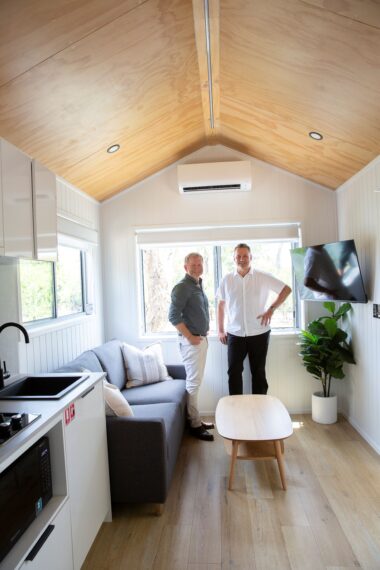New studies by La Trobe University have shed light on the impact of additional responsibilities women assumed by ‘default’ during the COVID-19 pandemic, influencing a spike in drinking among working mothers.
Participants noted the lack of control they felt over their everyday lives and drinking as they juggled working from home, parenting, household, and teaching roles combined with the limit on socialised activities outside the home.
The two studies were comprised of the same sample and interviewed 22 Australian women over five months in 2022, who mostly identified as professional workers between the ages of 36 and 51. They described feeling overburdened during COVID-19 restrictions because of their increased workload and lack of organisational support, contributing to heightened alcohol consumption.
“We were all stuffed, it was horrible. We were all working and trying to home school and it was just so awful … and so, I guess, my girlfriends were going through that too, the ones with kids, and they were all definitely drinking a lot more,” – study participant.
“It was probably the homeschooling that really made me crack,” – study participant.
“I don’t think there was, across the board, a great understanding of the stress involved in taking on supervision of children’s education in private work settings,” – study participant.
Lead researcher and PhD candidate Maree Patsouras, at the Centre for Alcohol Policy Research, said drinking alcohol for many women became a coping mechanism to surviving the day. However, the attitudes towards drinking shifted from pleasure to negative connotations as the study progressed.
“In the short term, women justified their alcohol consumption by wanting to relax and have some enjoyment,” Maree said.
“They explained there was little to look forward to during the lockdowns, with the absence of their usual activities, and the perception of alcohol as a reward was amplified.
“But the meanings associated with alcohol later conflicted with the earlier discussions to wanting to forget their days and ease the stress.”
Most working mothers described increased alcohol consumption often in terms of frequency, particularly on weekdays, during the lockdowns. Some women recounted they increased the quantity by pouring extra or larger glasses.
“Before COVID, maybe one or two nights a week and it would be a couple of glasses of wine. It wasn’t anything in excess, but then during COVID it became a bottle of wine sometimes,” – study participant.
Others reported their drinking style as distinctly different to men, where drinking occurred in the blurred transition between working and parenting roles. Maree said this highlights the research and its relevance beyond pandemic restrictions.
The studies also pointed to a broader cultural normalisation of alcohol use, particularly among women during the pandemic, amid a time when bottle shops were deemed as an essential service.
“Many women said they noticed more alcohol advertisements and when the opportunity came to meet with their friends, it often revolved around having a drink together as opposed to being able to exercise or socialise in other regular ways pre-COVID,” Maree said.
“Some women joked about alcohol use and how they would send photos of their wines to friends, with memes being shared around. So, it was just very pervasive during the lockdowns, and it supports other research that shows how advertisements used COVID-19 restrictions to promote alcohol as well.”
“A girlfriend and I would go for a walk and then we ended up at a cocktail bar that was doing takeaway cocktails and kind of walked home with a cocktail in our hand,” – study participant.
While most of the women spoke about their return to pre-alcohol consumption once lockdowns lifted, others said the drinking practices that had been learned and reinforced during lockdowns were harder to undo.
“It was in excess, absolutely. I recognise that now, but I am finding it very hard to shift the habits that have formed in that time period to now and not have that thought that, ‘Oh God, I need a drink,’” – study participant.
Researcher Dr Gabe Caluzzi said this period of social change highlighted the tendency for people to fall back into traditional gender roles and provides a case study for better arrangements in the event of a future disaster.
“While we only interviewed women, many were expected to do the mothering, the homeschooling, even while they were working and this played into women’s frustrations with COVID-19 restrictions and part of their reasons for drinking,” Dr Caluzzi said.
“There’s a need for a structural approach to the way women drink as it can be tied to varying gender roles, such as drinking for pleasure because they’re frustrated or not coping.
“It’s about making sure that women are supported in workplaces and in their homes and that there are resources for women to access, whether that’s childcare or homeschooling, so that not all the burden is placed on themselves to manage these tasks.”
Link to papers:
- A qualitative analysis investigating drinking practices and meanings among a sample of Australian working mothers
- 'We were all stuffed'. Did the Australian COVID-19 lockdowns exacerbate role-specific stress and alcohol use among working mothers? A qualitative analysis
Media Contact
Jess Whitty - [email protected], 0481 383 817


